|
 Tamara Cofman Wittes, Senior Fellow and Director, Center for Middle East Policy, Foreign Policy Program: Tamara Cofman Wittes, Senior Fellow and Director, Center for Middle East Policy, Foreign Policy Program:
Obama didn’t articulate a clear “theory of the case” about how to defeat ISIS.
A few thoughts to kick off what I expect will be a good discussion on the speech:
- If the four components laid out by the president last night make up the administration’s anti-ISIS strategy, then they’ve had that strategy ready for some weeks. We already knew the “no strategy yet” media focus was a red herring, but other than making explicit his readiness to strike in Syria, there is little he said last night that the administration had not already said.
- It’s striking to me that in launching what is, in many ways, a reversal of his previous six years of policy in the Middle East, signaling a turning-back of focused American attention toward this region, he didn’t feel the need to take much time in this speech to explain to the American people the real nature of the threat ISIS poses to the United States and its interests, and why this new approach, with all its inherent risks and costs, is necessary. In that light, I’d say that the president last night defined a war aim (degrade/eventually defeat ISIS), but not a strategic objective for U.S. policy.
- The threat to U.S. personnel in Iraq and the “potential threat” of foreign fighters targeting the homeland is a thin reed as a basis for building a major international coalition and opening a new, long-lasting front in the war on terrorism. This problem was compounded by his linking the anti-ISIS campaign to ongoing U.S. efforts in Yemen and Somalia. Either ISIS presents something new and particularly challenging that requires a different American approach, or the anti-ISIS struggle is just a continuation of the counter-terrorism efforts he’s undertaken through targeted military strikes, security cooperation, financial tools and diplomatic effort since taking office. I wish the president had been clearer about which way he views the new enterprise he just announced.
- In my own view, the real threat from ISIS to U.S. interests is that ISIS is not just a terrorist group, pure and simple (as the president put it last night). It’s a terroristic army and aspiring government that seeks to overrun not just state borders but states themselves, and by doing so, to overturn the regional order on which a large chunk of the global economy rests. We can’t allow that to happen, and that is ultimately why we are willing to increase our limited military engagement and risk wider conflict.
- The president understandably said very little last night about the risks of this new endeavor, among which I would highlight unintended escalation. And even though he made clear what he won’t do (or thinks he won’t do), there is still a slippery slope problem for the United States, particularly since he didn’t clearly define the threat, set an unreasonable and unreachable standard for success (destroy ISIS), and didn’t articulate a clear “theory of the case” about how to defeat ISIS. I am concerned that these weaknesses in the administration’s rationale so far make unintended escalation more likely. Yikes.
|
|
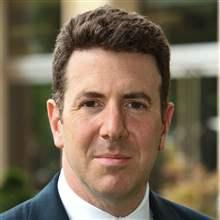 Daniel Byman, Senior Fellow and Director of Research, Center for Middle East Policy, Foreign Policy Program: Daniel Byman, Senior Fellow and Director of Research, Center for Middle East Policy, Foreign Policy Program:
I’m worried about the risk of spillover affecting stability issues in other countries.
I was happier, I guess. I wasn’t expecting any great detail from this speech. Rather, I was pleased that he was engaging the American people directly — something he avoided on Libya, in particular, which I found very frustrating. I see #1 as for a much longer speech or a policy document. As far as the real threat, I was glad he put the threat of ISIS-linked terrorism in proper perspective. I’d add the risk of spillover. We’ve already seen it in Iraq, and I’m worried about Lebanon in particular (though not of huge strategic importance) and stability issues in other neighbors. I have some further thoughts on Iraq in reaction to the speech I wrote for the Brookings blog.
|
|
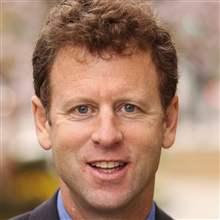 Michael O’Hanlon, Director of Research, Foreign Policy Program and Senior Fellow , Center for 21st Century Security and Intelligence, Foreign Policy Program: Michael O’Hanlon, Director of Research, Foreign Policy Program and Senior Fellow , Center for 21st Century Security and Intelligence, Foreign Policy Program:
The strategy underscores just how far there is to go.
I was about a five in happiness level, on a scale of one to 10. One more point: his fleeting mention of a Sunni National Guard concept was welcome–but gosh, I think it deserves more than six or eight words. It’s a crucial element of the strategy–create Sunni units to fight for their homeland, sort of an institutionalized version of the Sons of Iraq. But whether you like it or not, the sheer fact that the strategy depends on yet-to-be-developed new military units in Iraq (and, as Kenneth Pollack and others of us have written, a yet-to-be developed new Syrian opposition force) underscores just how far there is to go–and how much more we may need to do, ourselves, to help if it is to succeed in the end (in my assessment of the situation).
|
|
 Michael Doran, Senior Fellow, Center for Middle East Policy, Foreign Policy Program: Michael Doran, Senior Fellow, Center for Middle East Policy, Foreign Policy Program:
A true commitment to a Syrian opposition force will never materialize.
My view is that a true commitment to a Syrian opposition force will never materialize. I do admit that the engagement of the Saudis and others does increase the chance for a revitalized Free Syrian Army, and it offers us an opportunity, through articles like Kenneth Pollack’s fine Foreign Affairs piece, to push for it. But the president has long ago transmitted his deepest feelings on the subject, so I will believe it only when I see it.
|
|
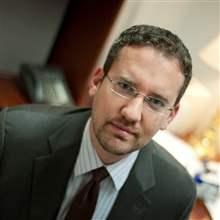 William McCants, Director, U.S. Relations with the Islamic World and Fellow, Center for Middle East Policy, Foreign Policy Program: William McCants, Director, U.S. Relations with the Islamic World and Fellow, Center for Middle East Policy, Foreign Policy Program:
The president didn’t do enough to ensure that the current high public support for attacking ISIS will last.
In the post I wrote ahead of the president’s speech, I was looking for the president to do three things:
- Level with the American people about the real danger of ISIS. ISIS is an immediate danger to our Arab allies, not to us.
- Explain how hard it’s going to be to actually destroy ISIS because of its home base in Syria, where there’s no capable proxy yet and Assad doesn’t want us there.
- Explain how we ensure that another ISIS won’t arise to take its place once we’re done.
On point one, I was pleasantly surprised the president didn’t hype the threat of ISIS to the homeland. But I was disappointed he didn’t say more about the regional order we’re actually fighting to protect. On points two and three, I didn’t hear much of anything.
Taken all together, the president didn’t do enough to ensure that the current high public support for attacking ISIS will last.
One small gripe: The president characterized ISIS as a terrorist group and his response as counter-terrorism. I imagine there are good political (and perhaps legal) reasons to use that language. But this is a war against an insurgent group.
|
|
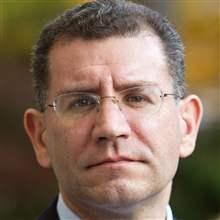 Ken Pollack, Senior Fellow, Center for Middle East Policy, Foreign Policy Program: Ken Pollack, Senior Fellow, Center for Middle East Policy, Foreign Policy Program:
I continue to believe that the rationale the president is employing is a huge mistake.
Here’s a bit of my take. Like many of you, I had a mixed reaction to the speech.
Some things that I thought positive:
- The overall tone. Like Dan, I thought that this speech was in marked contrast to others Obama had given, particularly the awful and overdue Libya speech. In this he was trying to convey determination, a pressing need and the call to American exceptionalism that other presidents have employed to rally the nation. That’s a winning combination that has long been absent from Obama’s foreign policy addresses (and policies), and I think this absence is one of the reasons that he gets such low marks on foreign policy at home and abroad.
- More specifically, I was struck by how he was leaning forward on Iraq. The Iraqi government is still a far cry from inclusive, let alone effective. I was watching to see if he was going to use that as an excuse for inaction, but he did the opposite. He said that what the Iraqis had done was good enough and we were now going to shift over to an offensive strategy (in Iraq), rebuild the Iraqi military and start to roll back ISIS. That is very different from even the Barack Obama from June-July who was still very reticent to get involved and looking for excuses not to. Now, as Mike Doran rightly notes, I worry that either this is just rhetoric now or he will lose his commitment in the near future. But I think it noteworthy that the Iraqi reality could have justified continued dithering and he set that aside and pledged action.
Some things I thought were negative:
- As you all have already noted, the Syria piece is very much up in the air. Now, this is a public speech and I don’t expect any president to lay out the details of a military strategy there, but we still have no clue what he intends to do in Syria and, as Will correctly notes, you can’t just drive ISIS out of Iraq without dealing with Syria. I noted that he was careful to differentiate the two campaigns–Iraq would be a military offensive, Syria would be a counter-terrorism campaign. A counter-terrorism campaign is not going to cut it in Syria. The Saudi offer to furnish the training base is very big, but the administration still has not signaled a willingness to go beyond the half-assed current policy. I have spent much of this week on the Hill and both parties remain very frustrated that the administration won’t outline a Syria strategy in private. As one senior Democratic congressman put it to me yesterday, “they are saying,” give us the money and trust us.’”
- I continue to believe that the rationale the president is employing is a huge mistake. I agree with Tamara that he should have reminded the American people that this is ultimately about oil and our economy (and Will, we need to acknowledge that that is where our ultimate interest in the Arab states lies). And I think other presidents have done that in ways that were not crass but sufficiently stirring to move the American public. Constantly resting this policy on the canard that Americans are directly at risk is at best cynical and at worst, downright duplicitous. If that were really the issue, we could evacuate the Americans over there in an afternoon. At least Bush had the decency to pin his policy to a threat that everyone believed. More importantly, I think that relying on what is transparently not the reason we are acting makes Obama look weak and undermines the determination that I noted above was one of the more positive aspects of the speech.
Ultimately, it was just a speech; a speech that was nothing but an effort to undo his mistake from two weeks earlier. I think we now really need to focus on what they do!
|
|
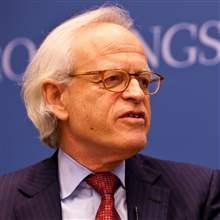 Martin Indyk, Vice President and Director, Foreign Policy Program: Martin Indyk, Vice President and Director, Foreign Policy Program:
ISIS is a state and that’s its Achilles heel.
In devising a strategy for combating ISIS, the United States has one advantage that arises from the biggest vulnerability of the “Islamic Caliphate.” Contrary to what President Obama said last night, they are a “state” in the sense that they have taken control of a large swath of territory and assumed responsibility for the millions of people who live there. As Hamas discovered in Gaza that puts them in a fundamental dilemma: do they feed the people or fight the enemy? That’s why Osama bin Laden so opposed establishing the caliphate. Hamas resolved the dilemma by entering into a truce with Israel, while preparing to fight it later. But when Egypt dried up its sources of revenue for feeding the people by shutting down its smuggling tunnels, Hamas tried to hand back that responsibility to the Palestinian Authority. Pretty soon now Gazans will likely turn against them, especially because neither Egypt nor the Palestinian Authority will relieve their plight until Hamas relinquishes control of the territory. As Abu Mazen told Khaled Mashal, “I refuse to be a fez on a scarecrow.”
In ISIS’s case, their control of territory gives the United States a clear target to go after (the terrain of their state advantages airpower). And their need to feed the people means that the more effectively we can dry up their sources of revenue, the more discontent they will face. This will take time, but it is certainly achievable and it relieves some of the problems of not having boots on the ground.
This is going to be a long war and that means that it’s going to be primarily waged on the next president’s watch. Obama’s principal contribution is that he turned his Middle East policy around, and enjoys the support of the Congress and the American people for doing so. Turning the ship of state around in the prevailing circumstances is what matters here. We were in the process of withdrawing from the Middle East and that has had a dramatic impact on our influence with all the players there. Now we’re coming back – gradually, hesitatingly no doubt. But the direction is clear. If President Obama had tried to turn public opinion around with full-throated and passionate words about the threat to our homeland and great statesmanlike rhetoric about America’s responsibility to create a new order in the Middle East, he would not have the American people with him. They’re tired of all that and, when it comes to the Middle East, don’t believe it any more. So from my point of view, the speech was just what was needed — good enough for government work. Now let’s take up our responsibility — to articulate and debate the strategy for winning this war and try to help the next president create a new order out of chaos.
|
|
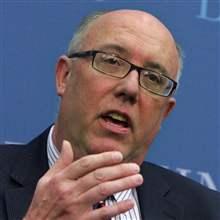 Bruce Riedel, Senior Fellow, Center for Middle East Policy and Center for 21st Century Security and Intelligence and Director, Intelligence Project, Foreign Policy Program: Bruce Riedel, Senior Fellow, Center for Middle East Policy and Center for 21st Century Security and Intelligence and Director, Intelligence Project, Foreign Policy Program:
ISIS poses a number of challenges, including a hostage challenge.
The Islamic State poses a number of challenges, including potential threats to the homeland in the future, an immediate ideological threat and the insurgent threat. It also is a hostage challenge. The United States has not confronted a significant hostage/counter-terrorism problem since 1991. When it did, two presidents found it extremely difficult to handle. The public wants the hostages rescued, not grand strategy (Martin rightly reminds us that is for think tanks). Carter lost his bid for reelection at the first Gulf War; Reagan traded arms for hostages and narrowly escaped impeachment. The elder Bush found a winning strategy in 1991 because he had something to give Iran/Hezbollah and because Saddam Hussein had inadvertently freed the captives Imad Mughniyah wanted to trade hostages for.
The Islamic State’s next move is probably to execute a third hostage, probably a U.K. citizen; they have at least five U.S. and U.K. hostages and can easily acquire more. The American public will find a disconnect between a three-year or longer strategic response, no matter how smart, and images of horror on the nightly news. It could easily get worse. Al Qaeda in Pakistan has one American hostage (completely forgotten by the media) and could take more easily in Pakistan. Al Qaeda in the Maghreb is basically a kidnap/extortion machine, but has avoided Americans until now– that could change.
Obama may face two or more years of hostage taking and executions, which seem to underscore the limits of American power. It will be easy for critics to charge him as weak and ineffective without of course providing a policy that stops hostage taking.
|
 Tamara Cofman Wittes, Senior Fellow and Director, Center for Middle East Policy, Foreign Policy Program:
Tamara Cofman Wittes, Senior Fellow and Director, Center for Middle East Policy, Foreign Policy Program: Daniel Byman, Senior Fellow and Director of Research, Center for Middle East Policy, Foreign Policy Program:
Daniel Byman, Senior Fellow and Director of Research, Center for Middle East Policy, Foreign Policy Program: Michael O’Hanlon, Director of Research, Foreign Policy Program and Senior Fellow , Center for 21st Century Security and Intelligence, Foreign Policy Program:
Michael O’Hanlon, Director of Research, Foreign Policy Program and Senior Fellow , Center for 21st Century Security and Intelligence, Foreign Policy Program: Michael Doran, Senior Fellow, Center for Middle East Policy, Foreign Policy Program:
Michael Doran, Senior Fellow, Center for Middle East Policy, Foreign Policy Program: William McCants, Director, U.S. Relations with the Islamic World and Fellow, Center for Middle East Policy, Foreign Policy Program:
William McCants, Director, U.S. Relations with the Islamic World and Fellow, Center for Middle East Policy, Foreign Policy Program: Ken Pollack, Senior Fellow, Center for Middle East Policy, Foreign Policy Program:
Ken Pollack, Senior Fellow, Center for Middle East Policy, Foreign Policy Program: Martin Indyk, Vice President and Director, Foreign Policy Program:
Martin Indyk, Vice President and Director, Foreign Policy Program: Bruce Riedel, Senior Fellow, Center for Middle East Policy and Center for 21st Century Security and Intelligence and Director, Intelligence Project, Foreign Policy Program:
Bruce Riedel, Senior Fellow, Center for Middle East Policy and Center for 21st Century Security and Intelligence and Director, Intelligence Project, Foreign Policy Program:
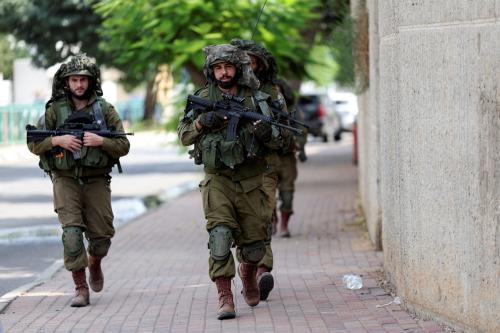
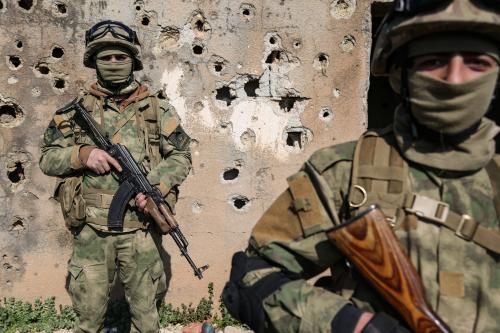
Commentary
Around the Halls: Brookings Scholars React to Obama’s Speech on ISIS
September 11, 2014